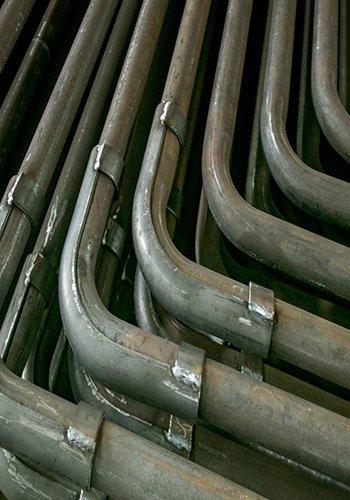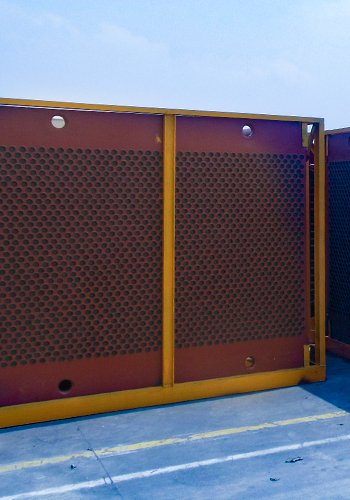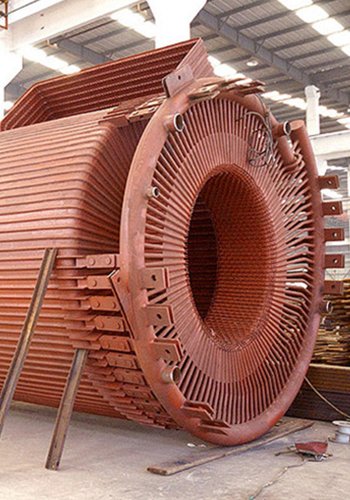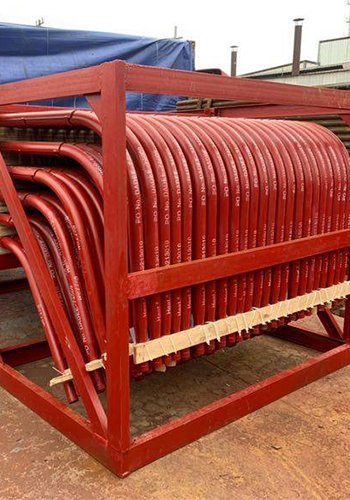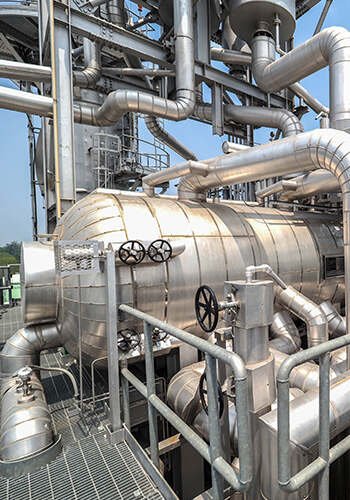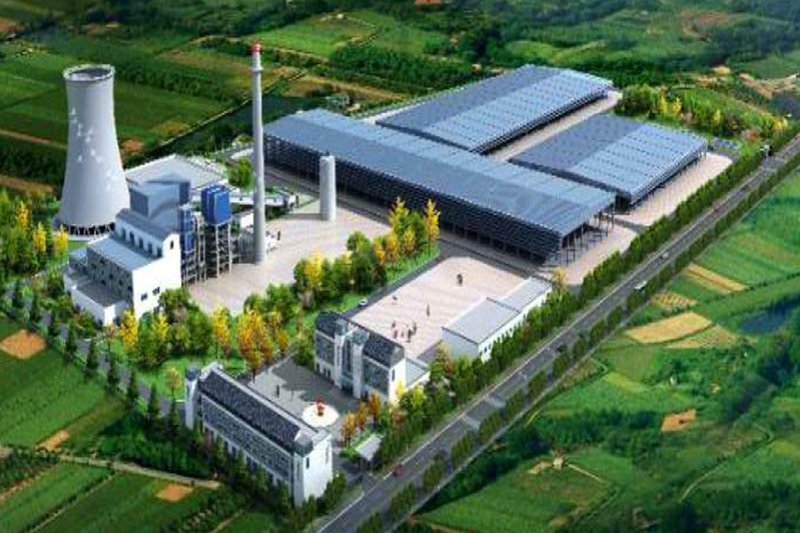In the ever-evolving world of industrial processes, technology has been a game-changer. One such advancement is the use of Boiler Water Wall Robots, which are revolutionizing the way we maintain boilers and upgrade our technology. In this article, we’ll explore why these robots are gaining popularity and the advantages they offer, along with potential disadvantages and countries leading in this technology.
Why Use Boiler Water Wall Robots?
Boiler Water Wall Robots have emerged as a transformative solution in the field of industrial maintenance. Their utilization is driven by several compelling reasons, each of which plays a vital role in improving the efficiency and safety of boiler maintenance operations.
1. Empowering Maintenance by Freeing Up Labor:
Traditional boiler maintenance, characterized by manual inspections and repairs, is not only labor-intensive but can also be dangerous. Human workers are often exposed to extreme heat and harsh working conditions while inspecting and maintaining water walls inside the boiler. Boiler Water Wall Robots are designed to alleviate these risks by taking on the most hazardous tasks.
These robots can enter the confined spaces of the boiler, navigate through tight corners, and perform tasks that would otherwise require human presence under physically challenging conditions. By doing so, they free up skilled labor from these perilous tasks, allowing them to focus on more complex and critical aspects of boiler maintenance, such as data analysis, system optimization, and decision-making.
The deployment of robots in this context promotes a safer work environment while reducing the potential for human error and injuries, making boiler maintenance a more attractive and sustainable industry for the workforce.
2. Creating Intelligence and Upgrading Technology:
Boiler Water Wall Robots are not just tools; they are equipped with advanced technology that goes beyond simple automation. They incorporate elements of artificial intelligence, machine learning, and data analytics, which enable them to learn and adapt as they perform their tasks.
These intelligent systems allow robots to not only execute pre-programmed actions but also make informed decisions based on real-time data and historical performance. They can identify irregularities, detect wear and tear, and predict potential issues. Moreover, they continuously collect data and analyze it, contributing to the overall improvement of boiler technology and maintenance practices.
In essence, Boiler Water Wall Robots are at the forefront of a technological revolution that is reshaping the way we manage industrial processes. By harnessing their intelligent capabilities, industries can not only streamline maintenance operations but also drive innovations and advancements in boiler technology, leading to improved overall efficiency and reduced operational costs.
In summary, the utilization of Boiler Water Wall Robots is driven by the dual purpose of enhancing safety and efficiency. By freeing up human labor from hazardous tasks and harnessing the power of advanced technology, these robots are empowering maintenance processes and contributing to the evolution of industrial boiler technology. Their role extends far beyond mere automation, as they become essential partners in ensuring the reliability, sustainability, and intelligence of industrial processes.
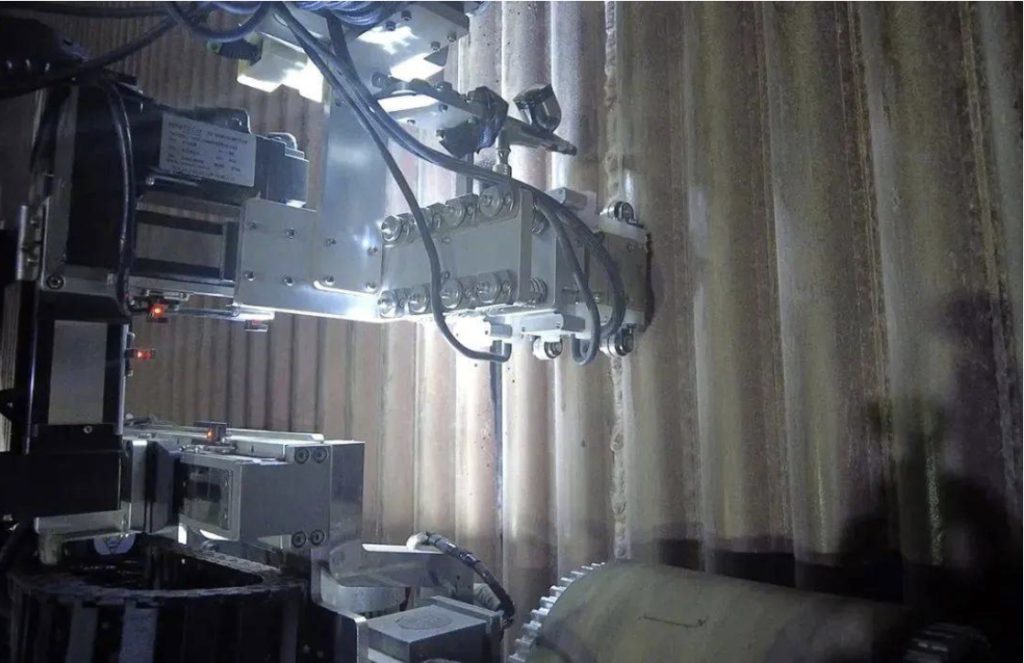
Advantages of Using Boiler Water Wall Robots:
Boiler Water Wall Robots offer a multitude of advantages that make them a game-changer in the field of industrial maintenance. These advantages encompass various aspects of efficiency, safety, and performance, making them an invaluable addition to industrial processes.
1. Integrated Intelligence for Engineering Practice:
Boiler Water Wall Robots are not just automated machines; they are equipped with integrated intelligence that brings a new level of efficiency to engineering practice. Here’s how:
- Real-Time Data Analysis: These robots can continuously monitor and analyze data from various sensors while conducting inspections and maintenance tasks. They process this data in real-time, enabling immediate decision-making and intervention when anomalies or issues are detected.
- Predictive Maintenance: Through machine learning algorithms, Boiler Water Wall Robots can predict potential problems before they escalate into critical issues. This capability allows for proactive maintenance, reducing downtime and preventing costly breakdowns.
- Optimization: By constantly collecting and analyzing data, these robots can optimize boiler performance. They fine-tune settings and operations for maximum efficiency, resulting in reduced energy consumption and lower operational costs.
2. Visual Inspection and Automatic Positioning:
Boiler Water Wall Robots are equipped with advanced sensors and cameras that provide detailed visual inspections, even in the extreme conditions found within boilers. Here’s how this visual capability benefits industrial processes:
- Comprehensive Assessment: Robots perform thorough inspections of water walls, covering every inch, which can be challenging for human operators due to the high temperatures and confined spaces. Their detailed inspections ensure early detection of any potential issues.
- Automatic Positioning: These robots can autonomously position themselves for optimal coverage, ensuring no area is missed. They navigate through the complex geometry of the boiler, which would be cumbersome and time-consuming for human workers.
- High-Quality Data: The visual data collected by Boiler Water Wall Robots is of high quality and can be stored for historical reference. This information is valuable for analyzing wear and tear patterns and tracking the boiler’s condition over time.
3. Surfacing Repair and Overhaul Application:
Boiler Water Wall Robots are not limited to inspections; they can also conduct maintenance and repair tasks with precision and efficiency. Here’s how they excel in this regard:
- Surfacing Repair: These robots are equipped with tools for surfacing repair, which includes activities like welding, applying coatings, or addressing corrosion issues. Their accuracy ensures that repairs are done to exact specifications, extending the lifespan of boiler components.
- Overhaul Application: The robots can assist in major overhaul operations, streamlining complex tasks and minimizing downtime. Their ability to handle intricate repair work contributes to cost savings and operational continuity.
In conclusion, the advantages of using Boiler Water Wall Robots are significant and multifaceted. They integrate intelligence into engineering practices, offer precise visual inspections, and facilitate surfacing repair and overhaul applications. By doing so, they enhance the efficiency, safety, and reliability of industrial boilers, making them a valuable asset in various industrial sectors. These robots not only reduce operational costs but also contribute to a more sustainable and environmentally friendly approach to industrial maintenance.
Disadvantages of Using Boiler Water Wall Robots:
While the benefits are significant, there are also potential disadvantages:
- Initial Investment: Implementing robotic systems can be costly, requiring a significant upfront investment.
- Maintenance: Robots themselves require maintenance and occasional upgrades.
Can Water Wall Robots Replace Manual Labor?
The possibility of water wall robots replacing manual labor depends on several factors, and it is likely to increase over time with technological advancements. Here are key factors that influence the likelihood of water wall robots replacing human workers:
1. Technological Maturity: As robotic technology, including artificial intelligence, machine learning, computer vision, and automation, continues to mature, the capabilities and reliability of water wall robots will improve. This will increase their potential to replace human labor.
2. Safety and Hazardous Conditions: Water wall robots are particularly valuable in environments with high temperatures, confined spaces, or hazardous conditions, where human workers face risks to their safety and health. The more challenging and dangerous the working conditions, the higher the likelihood that robots will replace manual labor.
3. Precision and Consistency: Robots excel in tasks that require precision and consistency. They can conduct thorough and accurate inspections, repairs, or maintenance activities without human error, making them a compelling choice for certain tasks within water wall maintenance.
4. Cost Considerations: The cost of developing, implementing, and maintaining water wall robots is a significant factor. If the initial investment and operating costs of robots become more cost-effective than human labor in the long run, the likelihood of adoption will increase.
5. Adaptability and Flexibility: Robots that can adapt to changing conditions, learn from their experiences, and perform multiple tasks are more likely to replace human labor. Adaptability and versatility make robots a valuable asset in dynamic industrial settings.
6. Regulatory and Labor Factors: Government regulations and labor considerations may also impact the potential for robot adoption. Regulations related to safety standards, labor practices, and the certification of robotic systems can influence their use.
7. Maintenance and Reliability: The reliability of water wall robots and their ability to perform consistent and efficient maintenance over time will be a critical factor. Frequent breakdowns or maintenance requirements could limit their adoption.
In summary, the possibility of water wall robots replacing human labor is contingent on technological advancements, safety requirements, cost-effectiveness, adaptability, and various external factors. As technology continues to advance and robots prove their worth in enhancing efficiency and safety, their adoption is likely to increase, particularly in hazardous and demanding industrial environments.
Countries Mastering Boiler Water Wall Robot Technologies:
Several countries are at the forefront of developing and implementing Boiler Water Wall Robots. These include:
- China: China has made significant advancements in boiler water wall robot technology, with several manufacturers and research institutions actively working on this.
- United States: The U.S. has a strong industrial technology sector, and many companies here are actively researching and deploying boiler water wall robots.
- Germany: Renowned for its engineering and manufacturing expertise, Germany is also a leader in developing robotic systems for industrial applications.
In conclusion, Boiler Water Wall Robots are a promising technology that is transforming the maintenance and operation of industrial boilers. They empower maintenance processes, enhance technology, and provide a range of advantages that can significantly improve efficiency and safety in various industries. However, they also come with initial costs and maintenance requirements. As the technology continues to evolve, more countries are likely to master these robotic systems.
DHB Boiler
Discover The Superior Quality And Cutting-Edge Technology Of DHB Boilers. Explore Our Range Of Biomass Boilers, Waste Heat Boilers, And More. Take Your Industrial Operations To New Heights With DHB Boiler.
